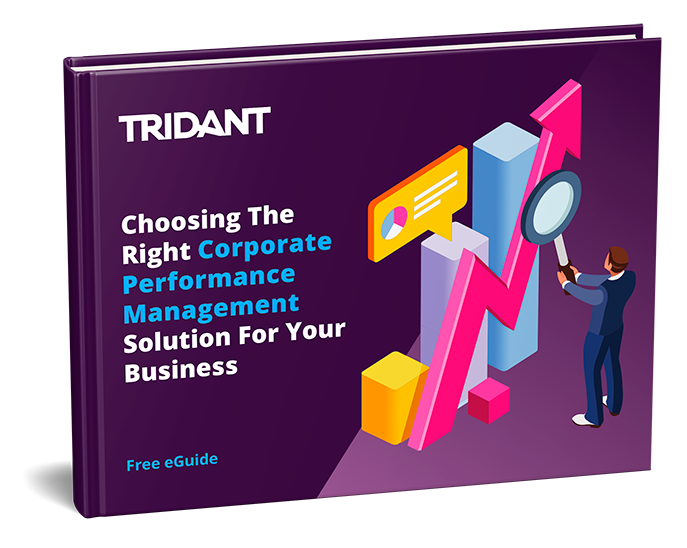
To ensure the Corporate Performance Management (CPM) solution you select is the most appropriate for your organisation, there are a number of factors you should consider, the first being application functional capabilities. However, there are also a number of non-functional capabilities that you should give consideration.
These non-functional capabilities will ensure the solution and implementation methods you select are effective and efficient, helping you get the most out of your CPM transformation. These capabilities include:
Depending on a technology vendors’ pricing structure, there are many components that could possibly impact the software cost.
Some vendors take a per user approach whereas others take a modular approach, and still others have a storage approach.
When assessing vendors for your needs, make sure that you understand the pricing structure for each contender. Components to inquire about are outlined next.
User costs
Does the price differ by user type? Think about how many of each user you will require if this is the case.
Storage costs
Does the vendor have a limit on storage capacity? How likely is it for you to reach that limit, and what would be the cost to increase the limit?
Number of environments
Often times multiple instances, domains, or models will be required either for different areas of the business or for different users (e.g. production, sandbox, etc.).
‘Unlimited’ approaches
Some CPM vendors allow for unlimited components such as users. Unlimited license agreements can require upper executive approval on the vendor side and could be available even if not marketed.
Method
Will you require application or software support? Make sure to understand what parties can provide support, at what levels, and what the costs are.
Availability
For some companies that have a global user base, ensuring support will be available 24 hours is critical. Other times, a business may cut costs to only have support 8 hours per day in their primary time zone. Make your requirements known during the assessment period.
Competency
For complex model builds, you will need to make sure the support resources are knowledgeable and equipped to help your business. Assess the competency and credentials of the team you are selecting, not just for the implementation, but also for support.
Skills required to operate a system are important to understand prior to embarking on a CPM journey. Many CPM vendors are designed to be operated by business planning managers and finance folks as opposed to developers or IT.
During the product demonstrations, you can ask the vendor to show the process of building out a model or a report if necessary. Any deep product conversations such as those are best left to a small audience (your CFO/CEO may not want to sit through that!).
If a technical solution does require special skills, you will need to factor this into the cost of the solution if it means hiring a new resource.
Project Delivery Method
Many vendors or partners will have their own preferred implementation method (one of the methods discussed previously or a proprietary method).
If you want to use a specific method that works best for your business, note this as a requirement.
Location of Resources
In the ever growing virtual world, many implementations are performed entirely remotely. If it's possible to get some face time, that would be optimal for the analysis and training phases, but if not, the project can still be successful. If you are embarking on a remote implementation for the first time, ask your partner how they ensure success (hint – communication is key).
Duration
Most medium sized CPM implementations will take 2-4 months. If you need to have the implementation completed by a certain date, include that in your assessment criteria. If multiple partners are telling you that the time expectations are unrealistic, listen to them.
Experience of Resources
As mentioned previously, an implementation team will often consist of a mix of individuals with different skill levels and experience. Ask for the implementation team profiles as part of your evaluation.
In some situations, it can be critical to have a team lead that has industry experience, for example, this can be important industries with unique planning requirements such as insurance, mining, or other regulated industries.
Ability to Participate
Whether or not your team is to participate in an implementation is a question that should be asked up front. It is recommended to have at least one team member participate in the build in order to gain maximum knowledge of the solution, however this is not always possible due to limited availability. If you want to have your internal team build part of the model, make this known in your requirements.
Industry specialisation
Some vendors will specialise in certain industries due to unique user interfaces or technical capabilities.
Success stories
Requesting success stories for vendor/partner clients in your industry will indicate both if the software is suitable for businesses similar to yours as well as whether or not the implementation may have experience with your industry. Other times success stories can provide insight on examples where a client implemented similar use cases such as statutory consolidation, complex allocations, or specific system integrations.
Accelerators and other IP
There is a trend in the CPM industry, where partners and vendors are moving more towards asset-based services. Many firms have built full blown industry-specific or functional-specific models that are ready to be adopted, others have accelerators that will serve as a starting point to speed up implementation and reduce your time to value. Ask your contenders to provide details on any IP or value-add capabilities that may be relevant for your business.

Copyright © Tridant Pty Ltd.